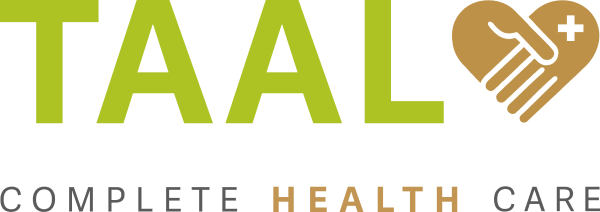In recent years, research has illuminated the intricate connection between HIV and cardiovascular disease, spotlighting the increased cardiovascular risks faced by people living with HIV. In India, a country where advancements in HIV treatment are continually evolving, understanding this link is critical to improving health outcomes. Here, we’ll explore how HIV treatment intersects with heart disease, the implications for prevention and management, and the pathways for effective prevention and control of HIV/AIDS.
The Connection Between HIV and Cardiovascular Health
For individuals living with HIV, the risk of cardiovascular disease (CVD) is significantly higher than in the general population. Studies suggest that prolonged HIV infection and its treatment can lead to inflammation and immune activation, which can damage blood vessels and accelerate conditions such as atherosclerosis (narrowing of the arteries) and high blood pressure.
This risk is compounded by traditional factors like smoking, a sedentary lifestyle, and co-occurring sexually transmitted infections (STIs). In India, where cardiovascular disease is already prevalent, it becomes essential to understand and address this additional risk in HIV-positive populations.
Advancements in HIV Treatment in India
India has made significant strides in providing access to effective HIV treatment, with antiretroviral therapy (ART) being the cornerstone of HIV management. The latest HIV treatment options have improved life expectancy and quality of life for people living with HIV. However, managing both HIV and cardiovascular disease requires a careful balance.
Cost and Accessibility of HIV Treatment
The cost of HIV treatment in India varies based on factors such as the regimen required, generic options, and whether the treatment is publicly or privately funded. India has successfully made ART accessible through government initiatives, reducing costs and expanding treatment coverage, though specialized treatments might incur higher costs.
For individuals requiring both HIV treatment and cardiovascular care, comprehensive care that addresses both conditions is crucial to minimize long-term health complications.
Prevention and Control of HIV/AIDS and Cardiovascular Health
Prevention remains a vital focus in India’s fight against HIV/AIDS, with awareness efforts targeting HIV prevention, including safe sex practices and reducing the transmission of sexually transmitted infections. Effective HIV/AIDS prevention and control measures can greatly reduce the incidence of heart disease among HIV-positive individuals by lowering inflammation and immune response.
Some strategies include:
- HIV Prevention and Education: Programs and initiatives emphasize safe practices and educate on the prevention of HIV transmission and STIs.
- Regular Monitoring: Routine cardiovascular screening for individuals with HIV can help detect early signs of CVD.
- Lifestyle Changes: Encouraging physical activity, smoking cessation, and a balanced diet can prevent the onset of heart disease.
Recognizing and Treating STIs to Support HIV Prevention
A critical part of managing HIV and preventing cardiovascular complications is addressing co-occurring sexually transmitted infections (STIs). Common STIs can increase HIV transmission risks and further impact cardiovascular health if untreated.
Understanding the symptoms of STIs, particularly STD symptoms in both women and men, allows for early detection and treatment, which reduces the burden on the immune system. Symptoms such as pain, itching, or unusual discharge in females, and sores or discomfort in males, can signal underlying infections that need timely STD treatment.
STD treatment in India is accessible through both public and private healthcare facilities, supporting efforts to control sexually transmitted infections and reduce the risk of HIV co-infections. Awareness around the signs and symptoms of STDs, as well as the importance of routine check-ups, can support both HIV management and prevention of sexually transmitted infections.
Key Takeaways
Managing the dual risks of HIV and cardiovascular disease requires a comprehensive approach. India’s ongoing commitment to expanding HIV treatment options and reducing costs is critical to these efforts. Education and preventive measures, from understanding the latest HIV treatment options to recognizing common STD symptoms, play a vital role in reducing the overall disease burden.
With continuous advancements in HIV care, support, and prevention, India is poised to improve the lives of individuals impacted by HIV while addressing the cardiovascular risks associated with long-term treatment.
Disclaimer
Please use individual discretion and judgment when applying any suggestions from the blog.





